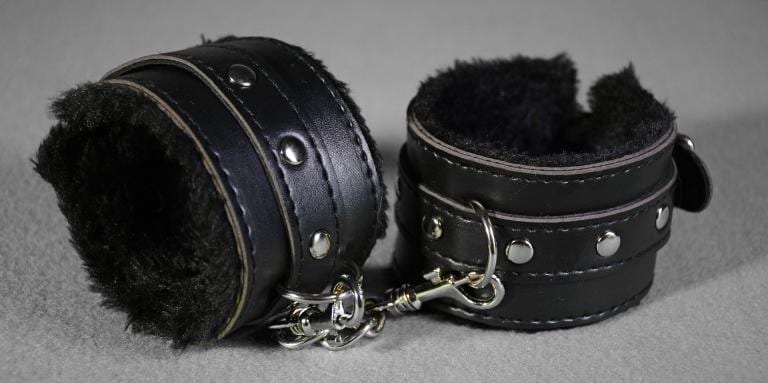I recently made the mistake of reading some posts over Biblical Gender Roles (link not included, because I don’t want to be responsible for any of my readers going on a murderous rampage and strangling Christian men with their fallopian tubes). Obviously, I could do an entire blog post where I just gnash my feminist teeth, but I suspect that wouldn’t be entirely productive.
So instead, I’m going to talk about my own experiences with the ideal of domestic patriarchy, and try to address the question of why this stuff appeals – not to men, which is obvious, but to women.
For a while, shortly after I became a Catholic, I ended up involved in a kind of weird conservative pro-life ghetto within the Church. This type of Catholicism presented itself as a pure ideal, the only truly orthodox expression of the faith, a hallowed remnant in a decadent world that had turned its back on God. All of that was intensely appealing to me, largely because it allowed me to think of myself as a humble handmaid of the Lord while at the same time providing sanctimonious cover for my deep-seated elitist tendencies. But that’s not the aspect of it that I want to talk about today.
One of the tenets of this form of Catholicism is that feminism is largely responsible for the present sorry state of society and of the Church. Women working outside of the home and rejecting the authority of their husbands is part and parcel of a pernicious campaign to destroy marriage, the family and human life.
Or so I was told. On one occasion I was even counselled by a priest to give up writing because it would take energy away from caring for my husband and children. Fortunately, my husband thought that this was bunk, and told me to stop scrupling and keep doing what I loved – and of course, as a good Catholic wife, I had to accept his ruling.
So, for several years I tried to submit to the authority of my husband, to avoid complaining about him, and to accept the overall judgement that when I failed to do this (which was pretty frequently) it was a result of my own wilfulness and stubborn pride.
Ahem.
Now the obvious question at this point is, how could someone who started off as a radical lesbian feminist ever consent to even make the attempt to be an obedient Christian hausfrau?
The first answer to this is actually quite innocent, and fairly straightforward. Imagine that you’ve just been outside in sub-zero weather without a coat and you’re freezing cold. Now, you enter the apartment of an elderly relation who keeps the thermostat set to 35°C. At first, as you’re warming up, the heat will feel marvellous. Only after you’ve been restored to a normal temperature will you notice that in fact it is sweltering. That’s kind of what it was like.
For a while, embracing traditional Christian femininity was actually very freeing. Radical feminism had been, in many ways,rather punishing. All ideologies demand that reality be changed in order to conform with an ideal, and the more radical the ideology the more radical the change that is demanded. Since the adherents of an ideology are invariably real people, one of the inevitable consequences of subscribing to a radical belief system is that one must engage in a campaign of constant self-alteration and self-critique for the sake of the cause. Radical feminism is no exception.
Initially, then, trying to embrace traditional femininity meant that I had no longer had to be absolutely independent. I could stop being constantly irritated by male behaviour, and I could stop feeling guilty for failing to call men out on trivial instances of unintentional sexism. I could have normal emotions. I could admit weakness. I could take pleasure in cooking a good meal for my male friends without worrying that I was feeding into reductive female stereotypes. I could open myself up and be emotionally vulnerable with a man. I was free to be as feminine as I wanted to be.
The problem, of course, was that I very quickly hit the point where my rather limited supply of deeply-repressed traditional femininity had been more or less entirely unleashed upon the world – and I was light-years away from achieving the ideal of Christian Womanhood (TM). So at this point a different set of mechanisms and rewards needed to kick in.
One of these was the simple psychological pleasure associated with transgression. That might sound like a strange, even counterintuitive statement, but for a woman raised with modern feminist ideals – especially one who pursued those ideals in a fairly extreme form – being a conservative Catholic housewife was highly transgressive. I really did feel like I had joined a new, counter-cultural movement that overturned everything that I had ever believed. I was on the bleeding edge of a Catholic renewal that was going to sweep away the tired progressive clichés of postmodern life and bravely assert a bold and unflinching return to the retrograde.
Hey. When you grow up in a culture whose greatest commandment is “thou shalt transgress,” how are you supposed to be transgressive except by embracing the dangerously conventional?
So that was one thing. The other was that assenting to the ideals of good Catholic womanhood earned me a lot of brownie points with men. The psychology was basically similar to that of women who claim to be cool with their boyfriends’ porn habit, or who make themselves to get really interested in sports in order to impress the guys. Basically, it’s extremely gratifying to your ego when you have a lot of men telling you that you’re so much better than all of the other girls.
And of course this is exactly what happens in conservative Christian circles. Feminists (that would be anyone who believes in real equality for women) are all skanks, strumpets, libertines, feminazis, killjoys and sabre-toothed lesbians. Sadly, almost all modern women fall into this category. But then there are the few: the women who bring their menfolk beer with a smile, who make a show of joyfully submitting to their husbands most trivial requests, who rhapsodise about how wonderful it is to be a holy housewife. And for the low-low price of a small piece of your dignity, you can be one of the few and bask in the glow of perpetual male adoration.
It didn’t last. Eventually, I read Mulieris Dignitatem and realized that the Church did not teach that feminism is evil – quite the opposite. I encountered John Paul II’s Theology of the Body, and learned that actually the domination of women by men is not God’s original plan for humanity, but rather one of the disorders that were introduced into the social order by the Fall. I got a new spiritual director who told me that there’s no such thing as a holy doormat. I hit the point where the social and psychological costs of trying to conform myself to some demented male ideal cooked up in the 1950s by a nation afflicted with cultural PTSD, simply outweighed the rewards.
And to be honest, my husband got sick of it too. He’d fallen in love with an intelligent, assertive, postmodern feminist who wrote dark existentialist poetry and could match him move for move in a philosophical scrap. He didn’t really want to be married to some kind of docile, cookie-cutter ideal of old-fashioned Catholic womanhood. He wanted me. Sabre–teeth and all.
Now that, I feel, is a patriarchal request that I can submit to.
Image credit: pixabay













